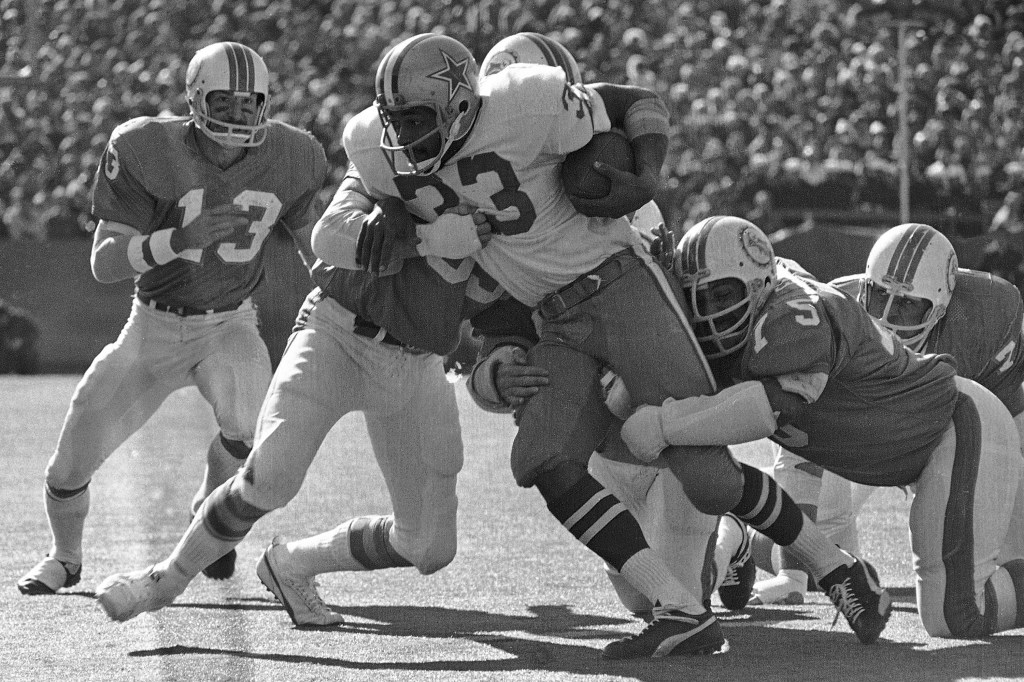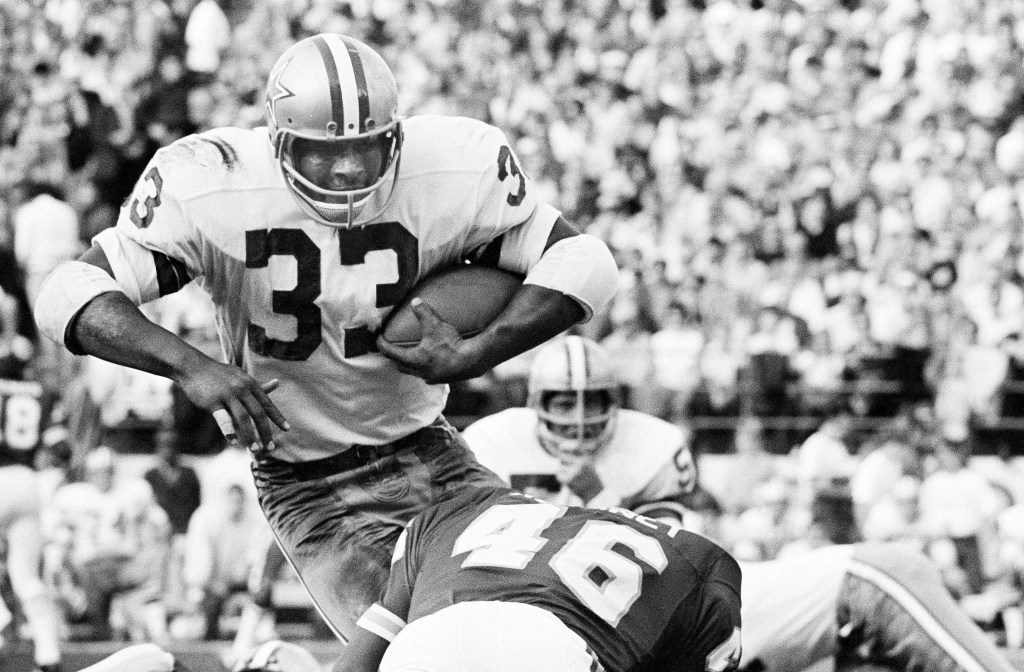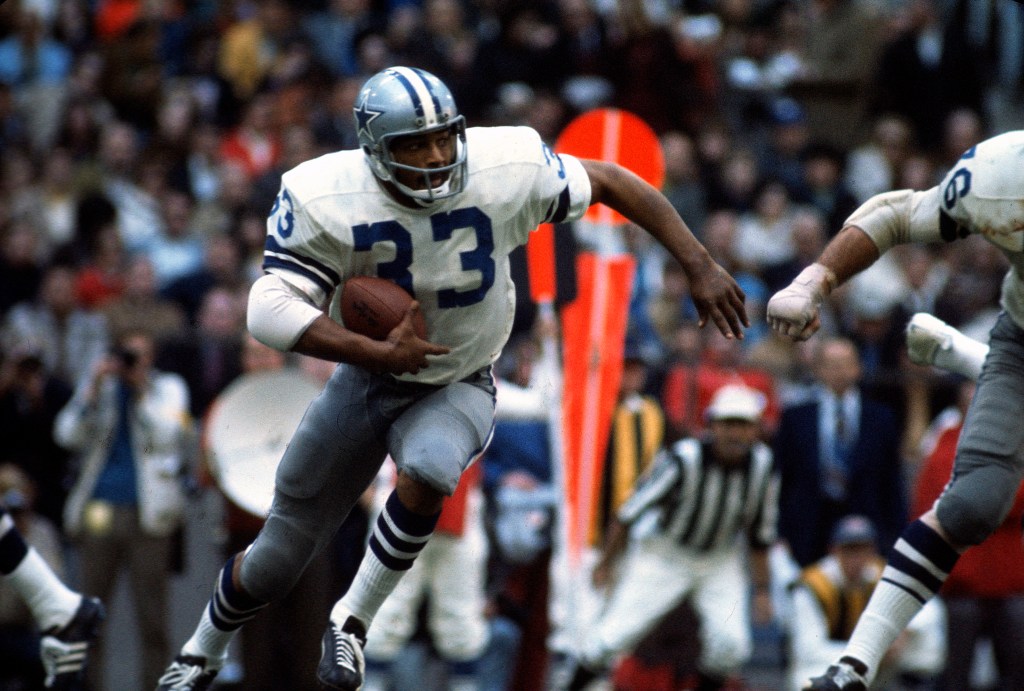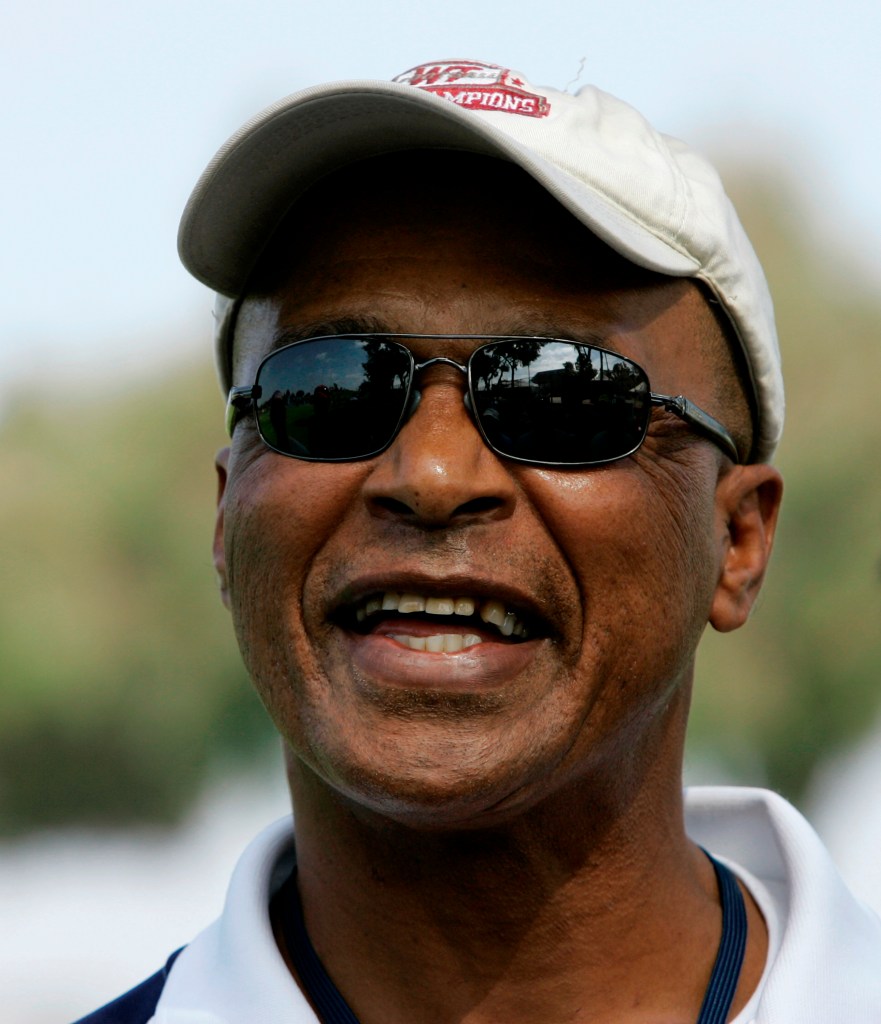In the annals of NFL history, few players have captivated the public’s imagination quite like Duane Thomas. A talented running back for the Dallas Cowboys, Thomas was a true enigma – a man of few words who let his electrifying performances on the field do the talking. His refusal to speak to teammates, coaches, and the media made him a source of fascination and frustration, but it was his undeniable skill and the success he brought to the Cowboys that cemented his place in football lore.

Duane Thomas is stopped by Miami Dolphins tacklers after picking up a short gain during the NFL football Super Bowl game in New Orleans, Jan. 16, 1972. AP
As a rookie in 1970, Duane Thomas burst onto the scene, leading the Cowboys in rushing with 803 yards and showcasing his remarkable abilities in the playoffs. His 100-yard performances against the Lions and 49ers were harbingers of the greatness to come. Thomas was a force to be reckoned with, a bruising runner with the speed and agility to leave defenders grasping at air.
However, Thomas’s rise to stardom was not without its share of controversy. In the offseason, he openly criticized the Cowboys’ management, refusing to renegotiate his contract and even going so far as to call head coach Tom Landry a “plastic man.” This defiant attitude would become the hallmark of Thomas’s career, as he continued to defy convention and buck the system.
Perhaps the most defining aspect of Duane Thomas’s legacy was his refusal to speak to his teammates, coaches, and the media. Despite his on-field brilliance, he remained stubbornly silent, leaving fans and analysts to wonder what was going on in his mind. “I’m remembered for my silence,” he acknowledged years later. “Everywhere I go, people say, ‘Why didn’t you say anything, Duane?'”
In the 1971 season, Thomas silenced his critics with a dominant performance, leading the league in rushing touchdowns (11) and total touchdowns (13). His crowning achievement came in Super Bowl VI, where he scored a touchdown in each of the Cowboys’ three postseason wins, including the decisive victory over the Miami Dolphins. The 24-3 win gave the Cowboys their first Super Bowl title, and Thomas’s contribution was undeniable.

Duane Thomas (33) gains yardage and a first down as is brought down by Kansas City Chiefs’ Jim Kearney (46) during the second quarter of an NFL football game at Municipal Stadium at Kansas City, Mo., Oct. 25, 1970. AP
After his Super Bowl triumph, Duane Thomas’s career took a sharp turn. He was traded to the Chargers in 1972 but was suspended by the team for failing to report and never played for San Diego. He spent two seasons with the Washington Redskins and also played for the World Football League’s Hawaiians, but his comeback attempts with the Cowboys and Packers were unsuccessful.

Duane Thomas #33 of the Dallas Cowboys carries the ball against the San Francisco 49ers during the NFC NFL Conference Championship football game at Texas Stadium in Dallas, Texas. Dallas won the game 14-3. Getty Images
Duane Thomas’s legacy is one of both brilliance and mystery. He was a supremely talented player who helped the Cowboys secure their first Super Bowl championship, but his refusal to engage with the media and his teammates has left an indelible mark on the collective memory of NFL fans. Even years after his retirement, Thomas remained an enigmatic figure, taking on odd jobs and shying away from the spotlight.

Duane Thomas responds to a reporter’s question during NFL football training camp, Saturday, July 26, 2008, in Oxnard, Calif. AP
Duane Thomas’s story is a cautionary tale of the pitfalls of unbridled talent and fierce independence. He was a player who could have been a true legend of the game, but his unwillingness to conform to the expectations of the NFL establishment ultimately overshadowed his on-field accomplishments. Yet, for those who witnessed his electrifying performances, Duane Thomas will always be remembered as a unique and enigmatic figure, a silent superstar whose impact on the game of football can never be fully measured.


